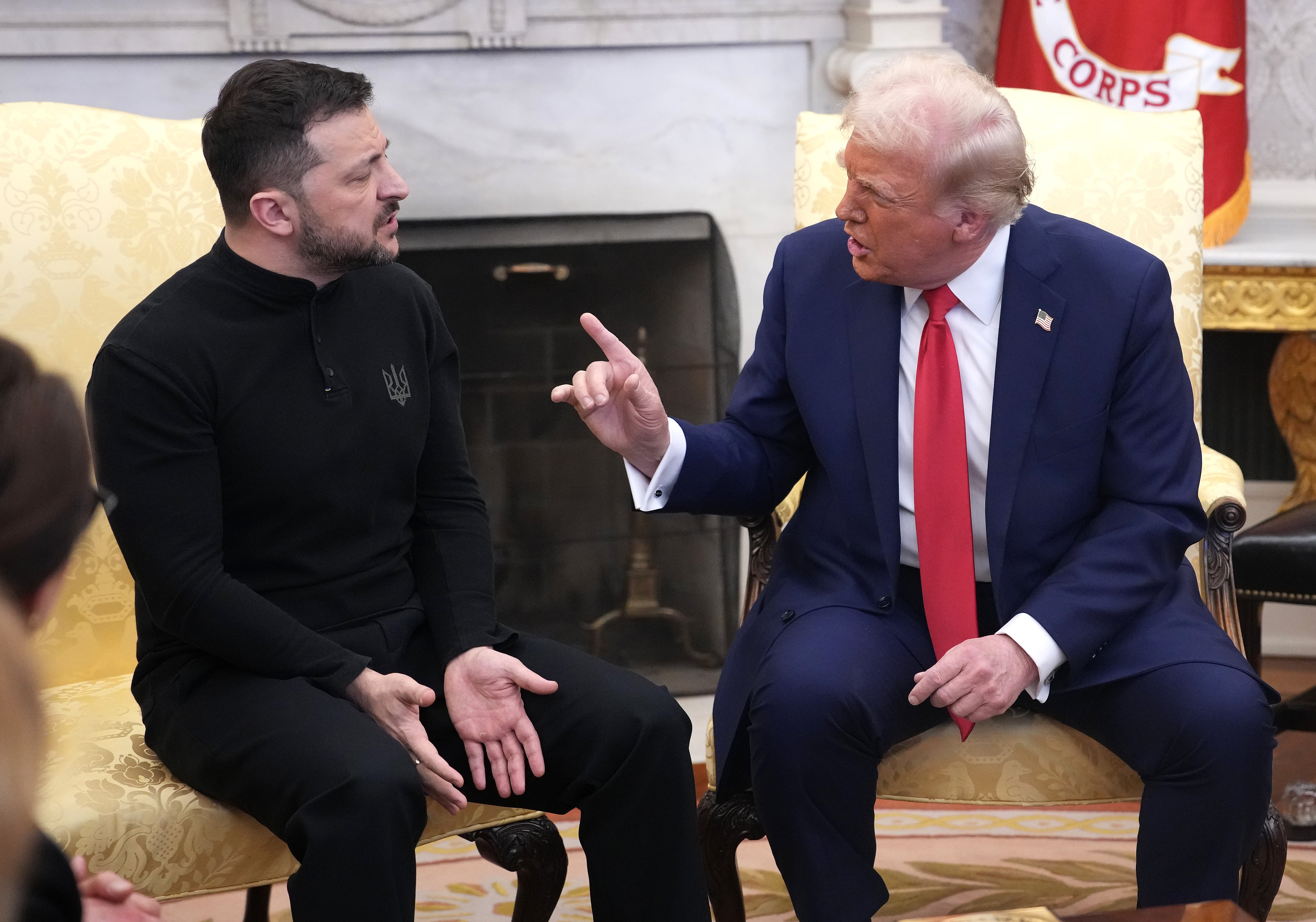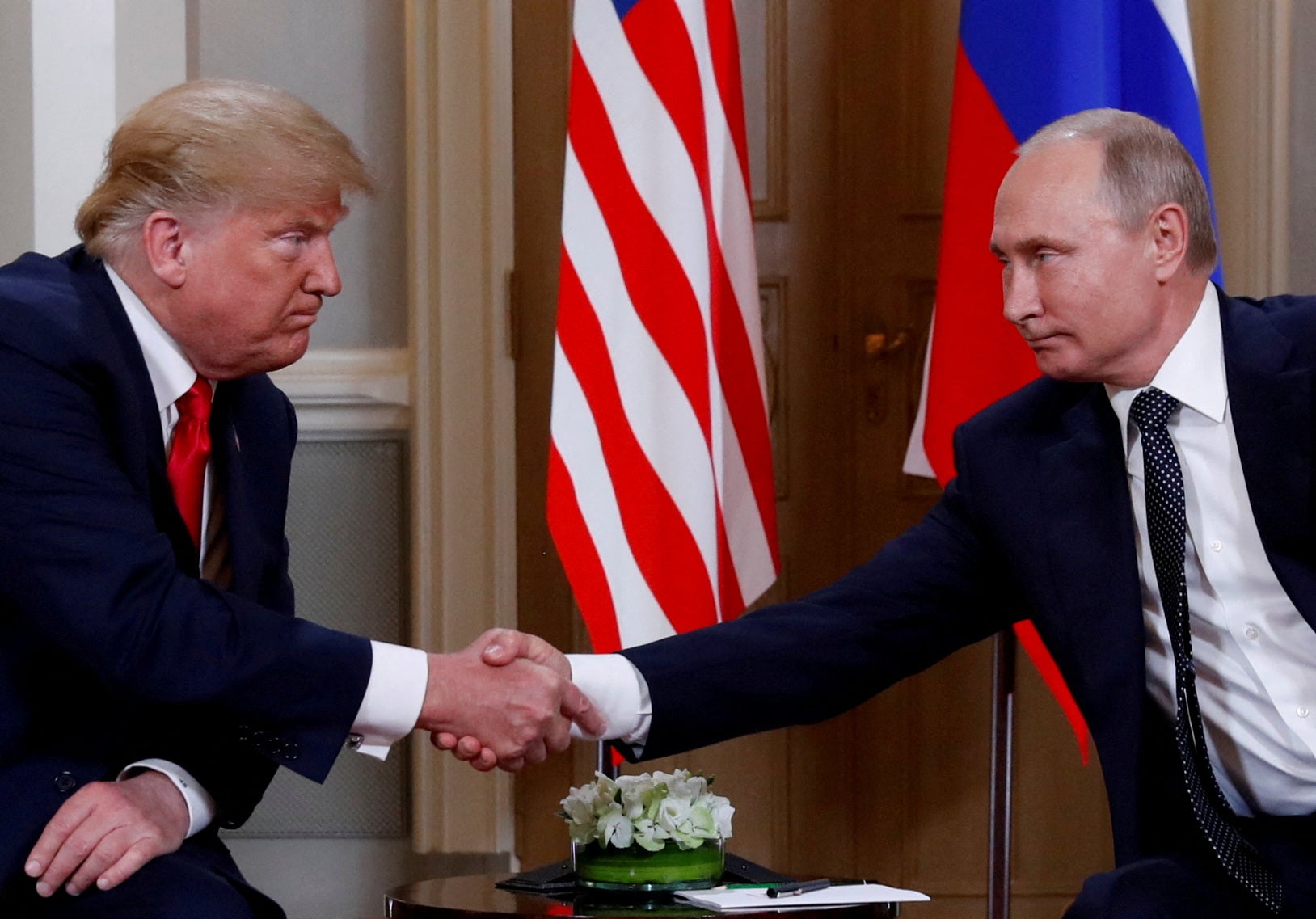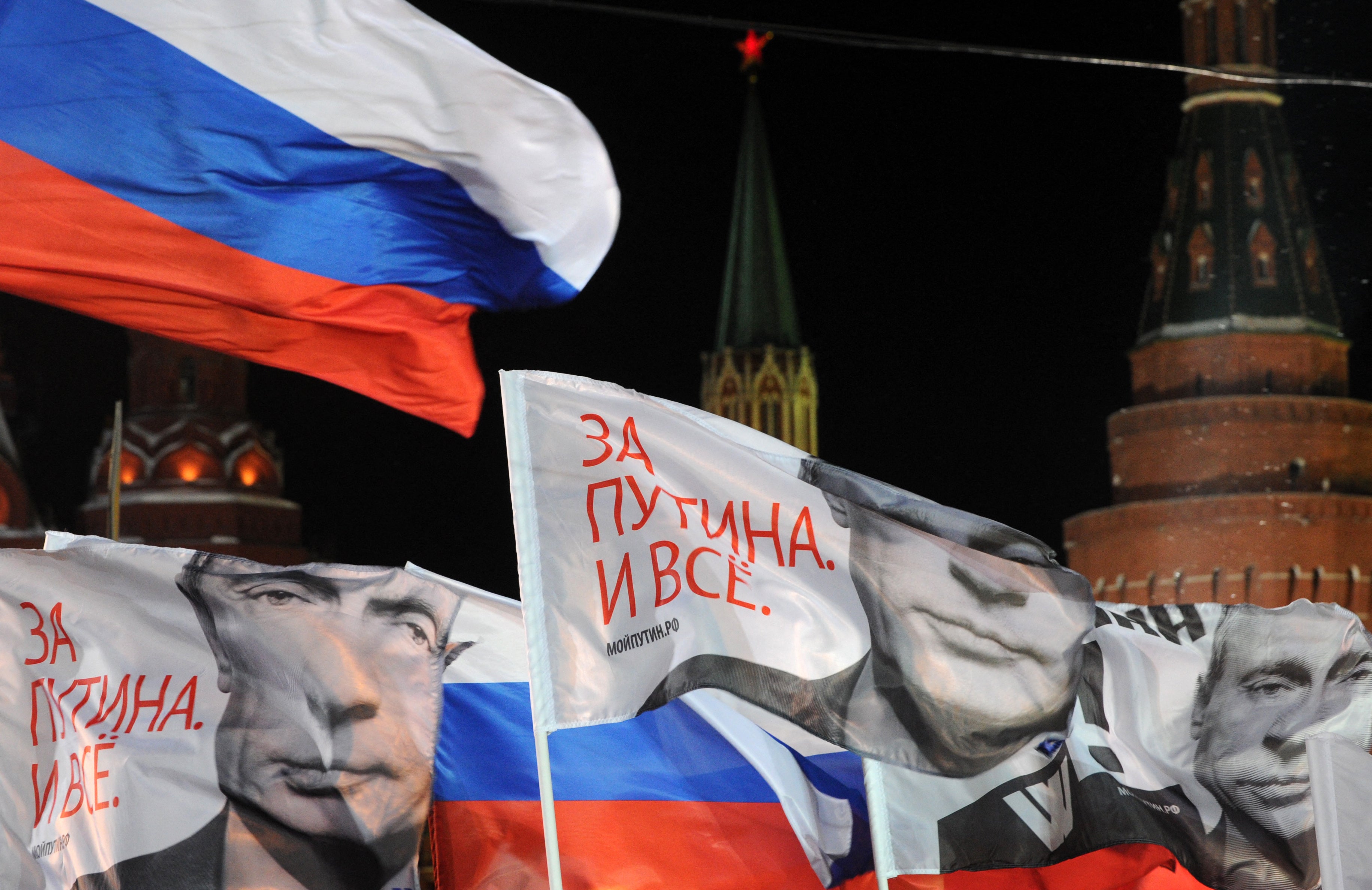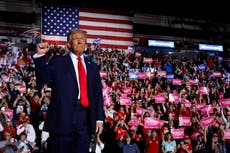Trump’s negotiations with Putin mean Europe needs to prepare for a second cold war
The on-going conversations over Ukraine show the president continues to pull the US defence rug from under our feet – Europe must stand alone or fail, write General Sir Richard Shirreff and Dr Stefanie Babst, former NATO Deputy Assistant Secretary General


It is always painful to abandon longstanding certainties. The transatlantic security bond has, for 76 years, been one such certainty. Since 1949, generations of Europeans and North Americans have lived with the confidence that political leaders on both sides of the Atlantic shared a strong commitment to the international rules-based order, democratic principles, and a common vision of “Europe whole, free and at peace”.
Notwithstanding sporadic disagreements between individual allies, and regular requests from the US for Europe to bear a fairer share of the military burden, the allies’ vow to defend each other in case of need and maintain a credible military deterrent was never called into question, and neither was the willingness of any given occupant of the Oval Office to come to the aid of a Nato member if they were attacked.
Now, Donald Trump and his Maga acolytes have brutally shattered this certainty. The transatlantic partnership is unravelling in front of our eyes: in the space of 100 days, Trump has undermined Nato’s collective stance on defence; hit the global economy with tariffs; threatened the territorial integrity of dedicated allies Canada and Denmark; interfered in the internal affairs of allies with his brazen support for European right-wing populist parties; and departed from well-established multilateral bodies including the World Health Organisation, the International Criminal Court and the UN Climate Change Conference. In a series of hammer blows, Trump has shattered the rules-based global order.
Shockingly for Washington’s longstanding European allies, the Trump administration is prepared to hand on a plate to Vladimir Putin, the most brutal aggressor Europe has faced since Hitler, two major Russian foreign policy goals: the decoupling of America from European security, and the neutralisation of Nato.
Trump’s attempts to ram a so-called “peace deal” down Ukrainian and European throats, side with the Kremlin and its authoritarian supporters in UN votes, suspend cyber operations against Russia, and acknowledge Moscow’s illegal annexation of Crimea while halting critical military intelligence for Ukraine, underscore Washington’s departure from the Nato consensus on Russia and Ukraine.
While European leaders are trying desperately to keep Trump on side, hoping he will pressure Putin into coming to the negotiating table, their potential diplomatic breakthrough in Istanbul flopped. Trump is deeply agnostic about the fate of Ukraine, and is ready to recognise a Russian sphere of influence in Eastern Europe – the US-Ukrainian “minerals” deal does not change this fact.
While it was a clever move by the government in Kyiv to bind Washington, to some degree, to Ukraine’s future, the fact is that without cast-iron security guarantees, Trump’s commitment to Ukraine will remain lukewarm at best.
This US foreign policy shift is fundamental. It goes much deeper than military and financial burden-sharing. For Trump, the geopolitical sphere is a jungle in which only those with a “winner takes all” approach can survive. Enlarging America’s geoeconomic sphere of influence, keeping China (as its most daunting strategic competitor) at bay, and aggressively pursuing profitable business deals are Trump’s foreign policy objectives.

Europeans and Canadians must confront the new geopolitical reality with clarity. Fear is a mind-killer. Denial is not a strategy. Neither is polite subordination, or whitewashing Trump’s actions. While some European governments support the concept of transatlantic burden-shifting, they still look to Washington to provide them with a generous five-to-10-year timeframe to build up Europe’s defence capability, hoping that the US withdraws in good order. This is naive at best. Rather, the assumption must be that Trump has pulled the US defence rug from under Europe’s feet, and that Europe must stand alone or fail.
This means it is imperative for Europeans and Canadians to keep Nato functioning, and to increase Europe’s capabilities quickly. Currently, the European Union is unable to generate a comparable warfighting capability. If Ukraine is to be supported and Russia deterred, Europe and Canada must accept Trump’s decoupling from European security as a fact and start developing a concrete roadmap for a reinvigorated Nato that Europeans will lead in the future.
The list of issues to be tackled is hard and long: how can the alliance function in the presence of disruptive US actions, a reduced US force posture in Europe, and a smaller US financial contribution to Nato’s common, civil and military budgets? How can the allies fill the gaps left by the US in Nato’s command structure, the alliance’s vitally important backbone? How can we replace the US’s critical strategic battle-winning enablers and, most critically, US troops assigned to Nato’s battle groups in Poland, Latvia, Romania and Bulgaria? And how can we maintain a credible nuclear deterrence posture?

The challenge at hand may look overwhelming. But with sufficient political will, overcoming it is feasible. A European-led Nato command structure could be trimmed down and adapted. A general defence plan, combined with a rigorous exercise programme, could help to gear Nato’s military posture towards what it must be prepared for in the first place: to fight a modern conventional war across all domains.
A much more synchronised capability development programme, worked out in close cooperation with the European Union, could fill gaps in command and control, reconnaissance and surveillance, military mobility, and other areas of European military weakness.
Now is the time for “action this day”, as Churchill would have said. The opportunity presented by the Nato summit in June must not be squandered by supplicant European leaders begging for a sign from Trump that all remains well. That horse has bolted from the stable.
Rather, they must present a rigorous strategy for how a Europe that is free and secure from the long-term existential threat posed by Russia can be achieved without US participation. The first step in such a strategy is to provide the means, capabilities and expertise to support Ukraine in defeating Russia, and to provide the country with credible security guarantees. Only when Putin and his successors recognise that Ukraine will never become part of a new Russian empire can there be lasting peace in Europe.

The way ahead will be hard. European societies must rebuild the resilience they possessed during the Cold War, which will mean sacrifice, hard work, moral courage, and exemplary political leadership. However, the alternatives are grim. Capitulation to the Trump agenda spells suicide for European security and democracy, the rolling back of Nato from its post-1997 boundaries, and the establishment of Putin’s “new Yalta”, in which Russia, once again, dominates Eastern Europe.
This would mean almost certain war between Europe (and Canada) and Russia. But such a catastrophe is not inevitable if Europe is prepared to fight a second cold war to avoid an even bigger global disaster. As Carl von Clausewitz wrote: “The first, the supreme, the most far-reaching act of judgement that the statesman and commander have to make is to establish the nature of the kind of war on which they are embarking.”
European leaders have had more than three years to recognise that the Russian way of war and diplomacy is one that is based on the brutal application of raw power and terror. Now they must turn the tide. By unleashing the right will, energy and determination, Europe is more than capable of outmatching Russia. Above all, Europeans must believe in their own power.
General Sir Richard Shirreff was Nato’s deputy supreme allied commander of Europe, and Dr Stefanie Babst is a former Nato deputy assistant secretary general
Join our commenting forum
Join thought-provoking conversations, follow other Independent readers and see their replies
Comments


Bookmark popover
Removed from bookmarks